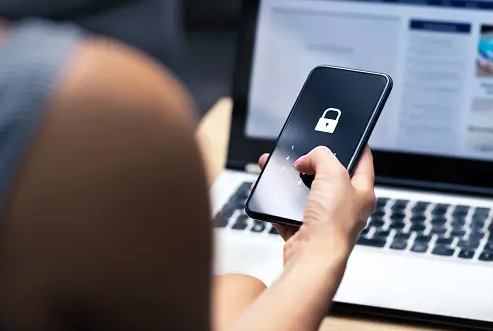Maintaining online privacy has become more important than ever. With increasing data collection, identity theft risks, and phishing attacks, it’s crucial to take proactive steps to safeguard your personal information and protect your online privacy. In this comprehensive guide, we will explore the concept of online privacy, common privacy risks, and provide expert tips on how to protect your online privacy like a pro. Let’s dive in!
Understanding Online Privacy
1.1 What is online privacy? Online privacy refers to an individual’s right to control and protect their personal information, activities, and identity when using the internet. It encompasses the ability to choose what information to share, who can access it, and how it is used.
1.2 Why is online privacy important? Online privacy is important for several reasons. It helps prevent unauthorized access to personal information, protects against identity theft, maintains confidentiality, and allows individuals to maintain control over their digital lives.
Common Privacy Risks To effectively protect your online privacy, it’s essential to understand the common risks and threats you may encounter.
2.1 Data collection and tracking Many websites and online services collect data about users, including their browsing habits, search history, and personal preferences. This data can be used for targeted advertising, profiling, or even sold to third parties, compromising your privacy.
2.2 Online identity theft Online identity theft involves stealing someone’s personal information, such as their name, address, Social Security number, or financial details, with malicious intent. This stolen information can be used to impersonate the victim, commit fraud, or gain unauthorized access to accounts.
2.3 Phishing attacks Phishing attacks involve tricking individuals into revealing sensitive information, such as passwords or credit card details, by posing as a trustworthy entity. These attacks often come in the form of deceptive emails, messages, or websites designed to look legitimate.
Protecting Your Online Privacy Now that we understand the risks, let’s explore some practical tips to protect your online privacy effectively.
3.1 Use strong and unique passwords Creating strong, complex passwords for each online account is vital. Use a combination of uppercase and lowercase letters, numbers, and symbols. Additionally, ensure that you use a unique password for each account to prevent unauthorized access in case of a data breach.
3.2 Enable two-factor authentication Two-factor authentication (2FA) adds an extra layer of security to your online accounts. By requiring a secondary verification step, such as a unique code sent to your phone, it significantly reduces the risk of unauthorized access, even if your password is compromised.
3.3 Be cautious with personal information online Avoid sharing sensitive personal information, such as your full address, phone number, or financial details, unless necessary. Be cautious about what you post on social media platforms and adjust privacy settings to limit access to your personal information.
Privacy Tools and Technologies Various tools and technologies can further enhance your online privacy protection.
4.1 Virtual private networks (VPNs) VPNs encrypt your internet connection and route it through a secure server, making it difficult for third parties to monitor your online activities. They are especially useful when using public Wi-Fi networks or accessing geo-restricted content.
4.2 Encryption and secure messaging platforms Using encrypted communication channels and secure messaging platforms ensures that your messages and calls are protected from interception. Look for platforms that offer end-to-end encryption for maximum privacy.
4.3 Privacy-focused web browsers Privacy-focused web browsers, such as Firefox or Brave, prioritize user privacy by blocking tracking scripts, disabling third-party cookies, and offering additional privacy features. Consider using these browsers for a more secure and private browsing experience.
FAQs:
- Why is online privacy important in the digital age? Online privacy is crucial in the digital age because it protects your personal information from unauthorized access, prevents identity theft, and maintains your autonomy over your own data.
- How can I protect my online privacy on social media? To protect your online privacy on social media, review and adjust your privacy settings, limit the personal information you share, be cautious when accepting friend requests or following unknown accounts, and avoid posting sensitive or private details publicly.
- Are free VPNs safe to use for privacy protection? Free VPNs may not offer the same level of security and privacy as paid VPN services. Some free VPNs may log your data or display ads. It’s recommended to use reputable, paid VPN services that prioritize user privacy.
- What are some signs of a potential phishing attack? Signs of a potential phishing attack include receiving unsolicited emails or messages asking for sensitive information, poor grammar or spelling in the message, suspicious or unfamiliar links, or requests for urgent action.
- Can using public Wi-Fi put my online privacy at risk? Yes, using public Wi-Fi networks can expose your online activities to potential risks. Hackers can intercept your data on unsecured networks. Using a VPN and avoiding accessing sensitive information or logging into accounts on public Wi-Fi can help mitigate these risks.
- What should I do if I suspect my online identity has been stolen? If you suspect your online identity has been stolen, act quickly. Contact your financial institutions, change passwords for your online accounts, monitor your credit reports, and consider placing a fraud alert or credit freeze on your accounts for added protection.
Protecting your online privacy requires a combination of awareness, vigilance, and utilizing appropriate tools and technologies. By understanding the risks, implementing strong security measures, and staying informed about emerging threats, you can safeguard your personal information and enjoy a more secure online experience. Take control of your online privacy like a pro and enjoy the peace of mind it brings.



